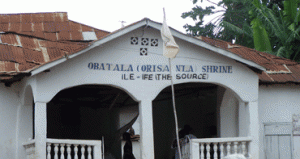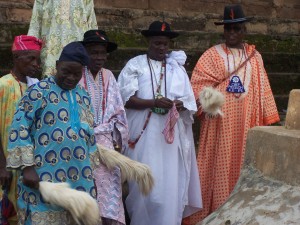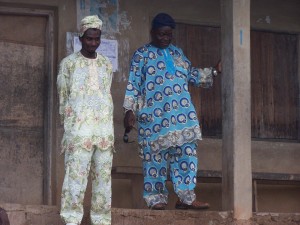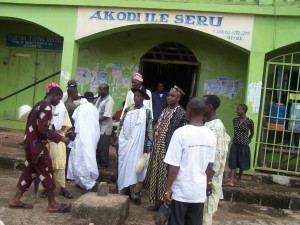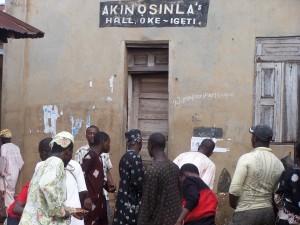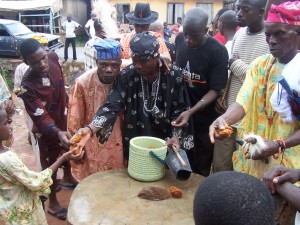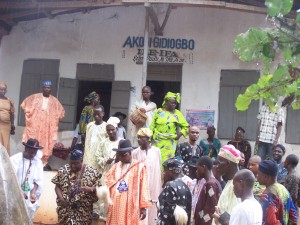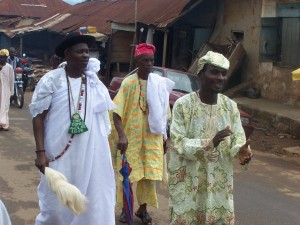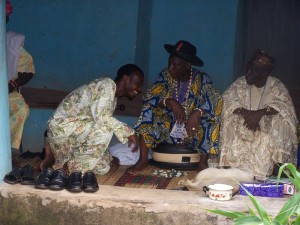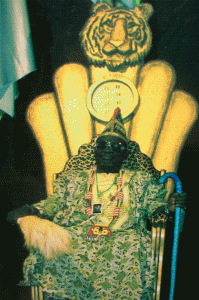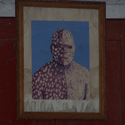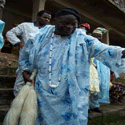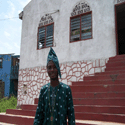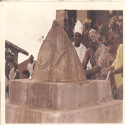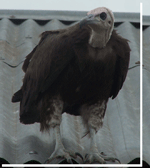
Igun
The Iyaami are the women that guide Olodumare. They go by the name Aje or Iyaami .
The three Iyaami that primarily guide Olodumare are called
Ayere Eiye
Ayere Eiye
Oyeye Eiye Ti Se Oniko Eleiye.
These three Iyaami not only guide Olodumare, but they empower the Aje on the earth.
They are the ones that originally sent the Aje to the World .
The three Iyaami have supreme power over Aje on earth and they are the ones who initiated and spread Aje throughout the World .
The Aje on earth fall into two categories, Oso, which are male Aje and the Eleiye which are female Aje.
Esu has ability to enter among both Oso and Eleiye. No one can choose to initiate Aje/Iyaami, they choose who they want to initiate and “call” that person.
No one can say they have initiated to Iyaami or say they can initiate you. No one can have or give a shrine to the Iyaami or Aje.
If someone claims to have an Iyaami shrine, can give a shrine, to have been initiated to Iyaami or wants to initiate you, they are speaking falsely.
It is impossible to truthfully make these claims.
There is no specific shrine to Aje.
To feed the Aje one must either feed them through Esu, Orita meta (3 road junction) or the Iroko tree.
No one knows the actual Aje shrine, however according to Elders and what Ifa says, we know that the name of their house is called Ota and the name of their shrine is called Idi.
No one knows the actual place of the Idi and if they do they can NEVER say..
The general belief of the Yoruba people is that the Aje are wicked and they must always be respected and feared.
The Yoruba hold this belief about the Aje because the Aje are known to torture, kill, and punish harshly anyone that disrespects or crosses them. Also many ill-gotten gains are obtained with the help of the Aje.
To see the good face of the Aje one must make proper sacrifice.
There are three types of earthly Aje: Dudu, Funfun, and Pupa.
The Aje Dudu do not directly kill people, however they torture people to the point of death. They deprive people from getting their destined success.
The Aje Pupa, also known as Oso, kill people directly. They use knives and have been known to slaughter many people.
The Aje Funfun give blessings, knowledge and they do not destroy. However, if a person is rude to them, they will deal with them harshly and punish severely.
The Aje Funfun tend to provide messages of knowledge and blessings to those that they help. They are mosly good but can be wicked if provoked.
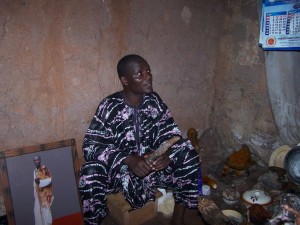
Chief Ifawole Idowu Awominure: Chief Ifawole was born and raised in Ile- Ife and comes from the Agesinyowa compound. He was born into a family of highly respected babalawos. Chief Ifawole specializes in Ifa and is active in the Obatala community. He has many omo Awo at home and abroad and has initiated many Ifa devotees. He holds the title Lisa, second to the Oluwa in the Ogboni Fraternity.
Ifa koni je ki a ri ija Eleiye ase o.








